I. Introduction - Eat Your Water
A. Importance of staying hydrated
Eat Your Water: In today's fast-paced world, it's easy to overlook the importance of staying hydrated. With busy schedules and countless distractions, many of us fail to drink enough water each day. However, maintaining proper hydration is crucial for our overall health and well-being, and it can even help us manage hunger between meals. Drinking sufficient water is vital for various bodily functions, including digestion, circulation, and temperature regulation.
Empower Your Health Journey – Explore My Free Apps for a Vibrant, Healthier Lifestyle Today!
The human body is made up of approximately 60% water, making it an essential component of our health. Every cell, tissue, and organ relies on water to function correctly. When we don't consume enough water, our bodies can't perform at their best, leading to fatigue, headaches, and even more serious complications like heatstroke or kidney problems.
Proper hydration also plays a significant role in hunger management. Sometimes, we may mistake thirst for hunger, leading to unnecessary snacking and overeating. Drinking water before or during meals can help us feel fuller faster, preventing overeating and aiding in weight management. Additionally, research has shown that increasing water intake can boost metabolism, further supporting weight loss efforts.
Staying hydrated also helps with digestion and nutrient absorption. Drinking water enables our bodies to break down food and absorb essential nutrients more efficiently. Moreover, adequate hydration can prevent constipation by ensuring that our digestive system runs smoothly.

By maintaining proper hydration, we can also support our immune system and skin health. Drinking enough water aids in flushing out toxins and helps our body fight off infections. Water is also necessary to maintain skin elasticity, prevent dryness, and promote a youthful appearance.
In summary, staying hydrated is essential for our overall health and well-being. It supports various bodily functions, aids in hunger management, and promotes better digestion, immunity, and skin health. By understanding the importance of drinking water and implementing strategies to stay hydrated, we can enhance our wellness and make healthier choices between meals.
B. Relationship between water intake, hunger, and health
The relationship between water intake, hunger, and health is more interconnected than one might initially realize. Staying hydrated has a direct impact on our hunger cues and overall health, influencing our food choices, energy levels, and body weight.
Firstly, adequate water intake can help regulate hunger signals. When we're dehydrated, our body may send mixed signals, causing us to mistake thirst for hunger. As a result, we might end up consuming unnecessary calories, which could lead to weight gain over time. Drinking water regularly throughout the day ensures that we can differentiate between hunger and thirst, making it easier to avoid overeating and make healthier food choices.
Drinking water can also play a role in weight management. Research has shown that increasing water consumption can boost our metabolic rate, helping our bodies burn more calories at rest. Additionally, consuming water before or during meals can help us feel full more quickly, preventing overeating and contributing to weight loss efforts. By staying hydrated and managing hunger effectively, we can create a calorie deficit and maintain a healthier weight.

Aside from its impact on hunger and weight management, proper hydration is vital for our overall health. Water is necessary for various bodily functions, including digestion, circulation, and temperature regulation. Staying hydrated helps our body break down food more efficiently, absorb nutrients effectively, and flush out toxins. Furthermore, adequate water intake can enhance cognitive function, support immune system health, and improve skin complexion.
In conclusion, understanding the relationship between water intake, hunger, and health is crucial for maintaining a healthy lifestyle. Ensuring that we stay hydrated throughout the day can help us manage hunger effectively, make better food choices, and support our overall well-being. By prioritizing hydration, we can enhance our health and make more informed decisions between meals.
II. Understanding the Concept of ''Eat Your Water''
A. Explanation of the title
''Eat your water'' is a creative way of expressing the idea of staying hydrated and managing hunger between meals by consuming water-rich foods or drinking water instead of reaching for high-calorie snacks. This concept emphasizes the importance of staying hydrated while also being mindful of the food choices we make when we feel hungry between meals.
The phrase suggests that we can "eat" water by incorporating water-rich foods into our diet, such as fruits, vegetables, and low-calorie beverages. Consuming these hydrating foods can help us maintain optimal hydration levels while providing essential nutrients, fiber, and a feeling of fullness that can curb hunger cravings.

The concept of "eating your water'' serves as a reminder that our food choices play a significant role in maintaining proper hydration and overall health. By choosing water or water-rich foods when we feel hungry between meals, we can satisfy our hunger, support weight management efforts, and promote overall health and well-being.
B. The benefits of water for hunger control and health
Water plays a crucial role in hunger control and maintaining good health, providing several benefits that help us make healthier choices between meals. Here are some key advantages of water for hunger control and health:
- Regulates hunger signals: Dehydration can cause our body to send mixed signals, leading us to mistake thirst for hunger. Drinking water regularly throughout the day can help us differentiate between hunger and thirst, preventing overeating and promoting healthier food choices.
- Supports weight management: Drinking water before or during meals can create a feeling of fullness, reducing the amount of food we consume and preventing overeating. Additionally, research has shown that increasing water intake can boost metabolism, helping our bodies burn more calories at rest, and supporting weight loss efforts.
- Improves digestion and nutrient absorption: Staying hydrated is essential for the efficient breakdown of food and absorption of vital nutrients. Drinking water helps our digestive system run smoothly, preventing constipation and ensuring that our body gets the nutrients it needs.
- Enhances cognitive function: Proper hydration is vital for maintaining optimal brain function. Dehydration can lead to fatigue, difficulty concentrating, and even impair short-term memory. Drinking enough water ensures that our cognitive abilities remain sharp and focused.
- Supports immune system health: Water aids in flushing out toxins from our body and helps fight off infections. Staying hydrated can contribute to a more robust immune system, keeping us healthier overall.
- Improves skin health: Adequate water intake helps maintain skin elasticity, preventing dryness and promoting a more youthful appearance. Drinking enough water can lead to better skin complexion and hydration.
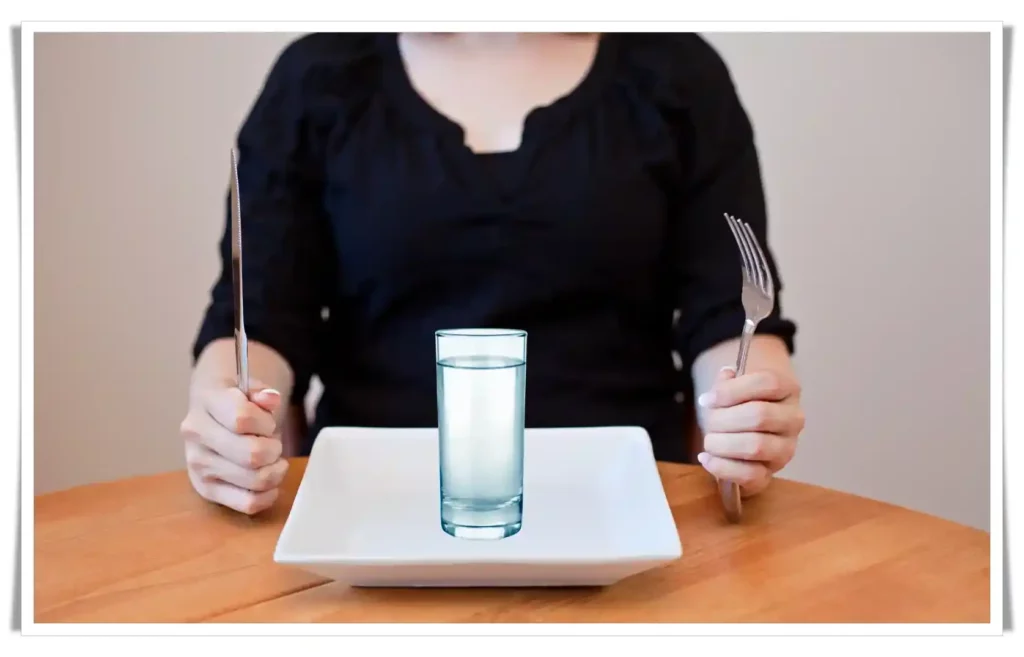
In conclusion, the benefits of water for hunger control and health are numerous, ranging from regulating hunger signals to supporting weight management, improving digestion, and enhancing cognitive function. By understanding the importance of water and incorporating it into our daily routine, we can make healthier choices between meals and promote overall well-being.
III. The Science Behind Hydration and Hunger Management
A. The role of water in the body
Water is a vital component of our body, playing an essential role in numerous functions and processes that are critical for maintaining good health. Here are some key roles of water in the body:
- Temperature regulation: Water has a high heat capacity, allowing it to absorb and release heat efficiently. It helps regulate body temperature by dissipating heat through sweating and respiration, preventing overheating.
- Transporting nutrients and oxygen: Water serves as the primary medium for transporting essential nutrients, oxygen, and waste products throughout the body. It enables the circulatory system to deliver nutrients and oxygen to cells and remove waste products for elimination.
- Digestion and absorption: Water is crucial for the proper functioning of the digestive system. It helps break down food, enabling the absorption of nutrients and minerals into the bloodstream. Additionally, water plays a vital role in the elimination of waste products through urine and feces.
- Lubrication: Water acts as a natural lubricant, cushioning our joints and reducing friction between them. It also protects and lubricates sensitive tissues and organs, such as the eyes and the lining of the mouth, nose, and throat.
- Chemical reactions: Water is involved in numerous chemical reactions within the body, including metabolism, the breakdown and synthesis of nutrients, and the production of energy.
- Hunger control: As previously mentioned, water intake is essential in regulating hunger signals. When we're adequately hydrated, our body can differentiate between hunger and thirst, preventing overeating and promoting healthier food choices.

Understanding the role of water in the body is crucial for managing hunger and maintaining good health.
B. How hydration impacts appetite
Hydration plays a significant role in appetite regulation, affecting our hunger signals, satiety, and overall eating behavior. Here are some ways in which hydration impacts appetite:
- Thirst and hunger signals: The hypothalamus, a region in the brain, regulates both thirst and hunger signals. Sometimes, the body can confuse thirst for hunger, leading to increased food consumption when, in fact, we are just dehydrated. Drinking water helps the body differentiate between these signals, ensuring that we satisfy our thirst and avoid unnecessary snacking.
- Satiety: Consuming water before or during meals can help increase the feeling of fullness, as water takes up space in the stomach. This helps to reduce the amount of food we consume and aids in managing appetite more effectively.
- Digestion: Adequate hydration is crucial for optimal digestion, as water helps break down food and facilitates the absorption of nutrients. Poor digestion due to dehydration can lead to feelings of bloating, discomfort, and false hunger signals.
- Metabolism: Water is involved in various metabolic processes, including the breakdown of stored fats and carbohydrates. Dehydration can slow down metabolism, leading to a decrease in energy expenditure and an increase in appetite.
- Hormonal regulation: Hydration impacts the production and release of appetite-regulating hormones, such as ghrelin (the hunger hormone) and leptin (the satiety hormone). Maintaining proper hydration can help balance these hormones, promoting better appetite control.
- Blood sugar control: Dehydration can impair the body's ability to regulate blood sugar levels, which can lead to fluctuations in appetite. Drinking water helps maintain stable blood sugar levels, preventing sudden cravings and overeating.

By understanding the impact of hydration on appetite, we can make more conscious choices about our water intake and eating habits. Staying well-hydrated is essential not only for overall health but also for managing hunger, making healthier food choices, and maintaining a balanced diet.
C. Scientific study - Water Consumption Increases Weight Loss During a Hypocaloric Diet Intervention in Middle-aged and Older Adults.
- Study details
A notable scientific study examining the relationship between water consumption, appetite, and weight management is titled "Water Consumption Increases Weight Loss During a Hypocaloric Diet Intervention in Middle-aged and Older Adults." The study, conducted by Dennis EA, Dengo AL, Comber DL, et al., was published in the journal Obesity in 2010. The researchers aimed to investigate the effects of increased water intake on weight loss in middle-aged and older adults during a 12-week, hypocaloric diet intervention.
- Findings and implications
The study involved 48 adults aged between 55 and 75 years, who were divided into two groups. One group followed a hypocaloric diet while also consuming 500 ml of water 30 minutes before each meal (water group), while the other group followed the same diet but without the additional water intake (non-water group). The researchers monitored the participants' weight, body composition, and appetite throughout the study.
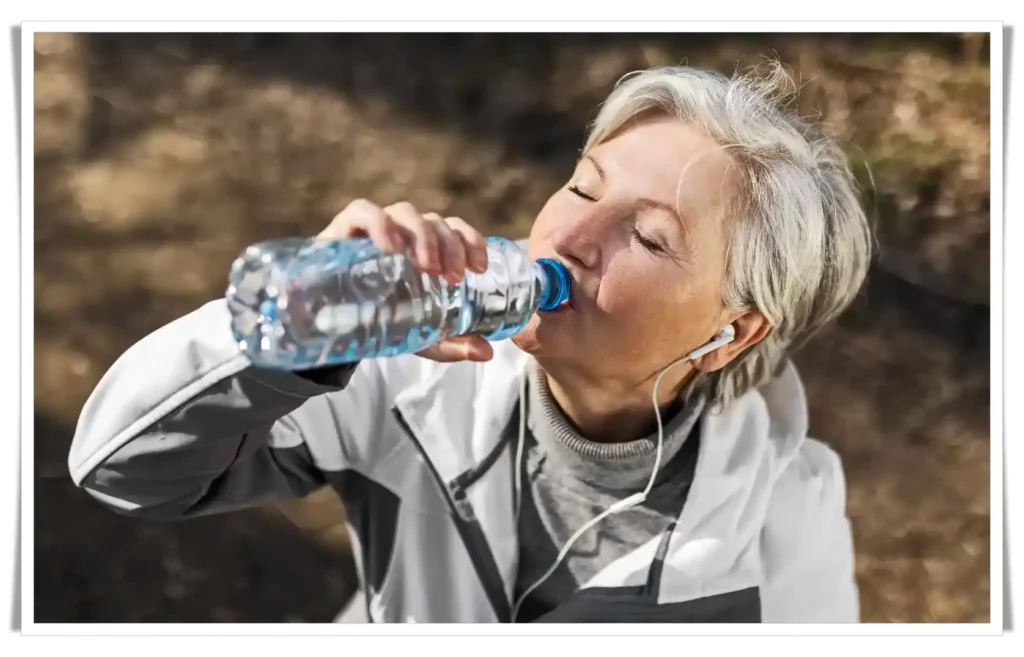
The results showed that the water group experienced a significantly greater weight loss (about 2 kg, or 4.4 lbs) compared to the non-water group. Additionally, the water group reported a decrease in appetite, with participants consuming fewer calories during meals. The study concluded that consuming 500 ml of water before each meal can aid in weight loss and appetite control during a hypocaloric diet intervention.
These findings highlight the importance of incorporating adequate water intake into our daily routines, not only for overall health but also for managing hunger, making healthier food choices, and maintaining a balanced diet.
IV. Tips to "Eat Your Water'' and Smart Snacking
A. Hydration tips and tricks
- Drinking water before meals:
Drinking water before meals can help in appetite control and weight management. Aim to consume a glass of water (about 500 ml or 16.9 fl oz) around 30 minutes before each meal. This not only improves digestion but also helps you feel fuller, leading to reduced caloric intake and better portion control.
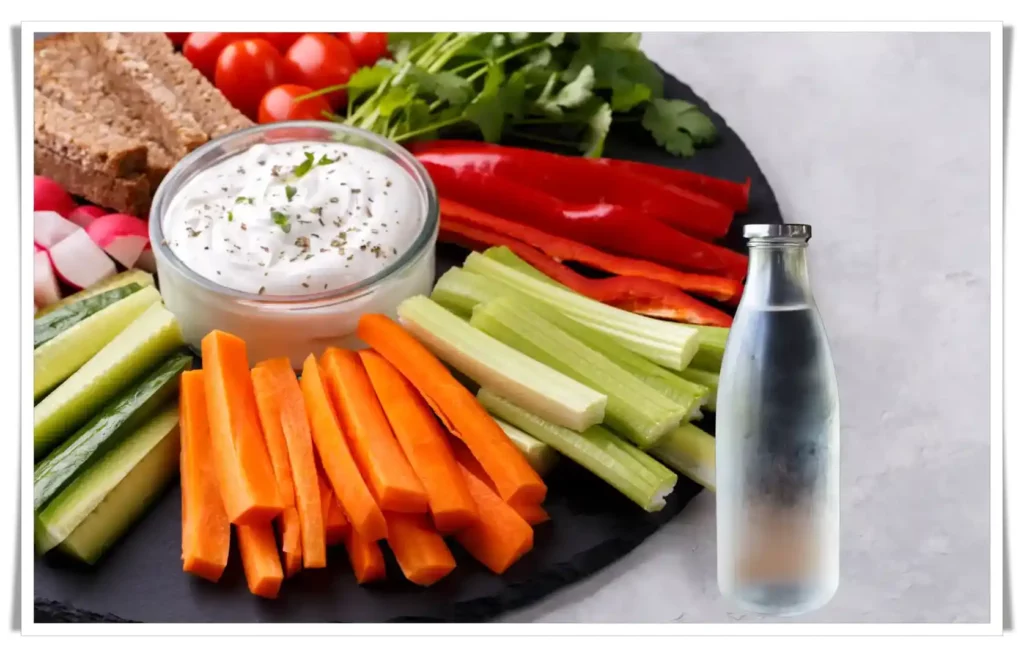
- Flavoring water for better taste:
If you find it challenging to drink plain water, try flavoring it with natural ingredients to enhance the taste and make it more enjoyable. Some healthy options include adding fresh fruit slices (such as lemon, lime, orange, or cucumber), a splash of 100% fruit juice, a few mint leaves, or a small amount of unsweetened fruit-infused tea. These additions not only make your water taste better but also provide additional nutrients and antioxidants. Remember to avoid artificial sweeteners, as they may have negative health effects and can increase cravings for sweet foods.
B. Healthy snacking alternatives
- Water-rich foods:
Incorporating water-rich foods into your snacking routine can help keep you hydrated and satisfied while providing essential nutrients. Some excellent water-rich food options include:
- Cucumbers: With a water content of around 95%, cucumbers are a great hydrating snack. They're also low in calories and contain essential nutrients like vitamin K and potassium.
- Watermelon: This fruit is made up of 92% water and is a delicious, refreshing snack packed with vitamins A and C, as well as the antioxidant lycopene.
- Strawberries: Another water-rich option, strawberries contain 91% water and are an excellent source of vitamin C, manganese, and antioxidants.
- Celery: Comprising 95% water, celery is a crunchy, low-calorie snack that provides fiber, vitamin K, and potassium.
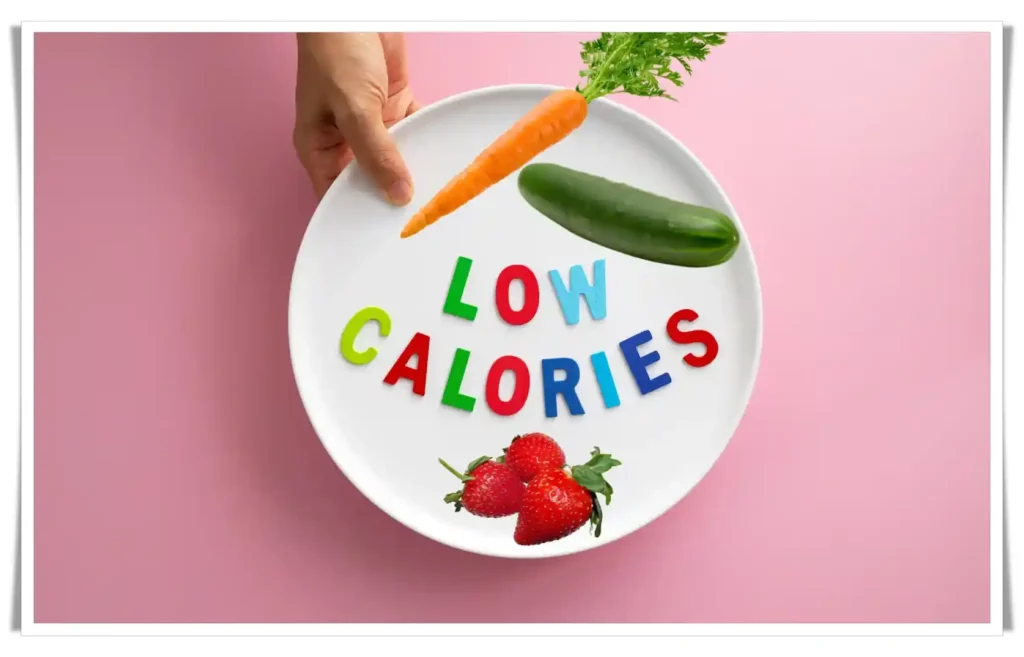
- Low-calorie options:
If you're looking for low-calorie snacking alternatives to keep your hunger in check between meals, consider the following options:
- Air-popped popcorn: A whole grain snack, air-popped popcorn is low in calories and high in fiber, making it a satisfying and healthy choice.
- Greek yogurt: Opt for plain, non-fat Greek yogurt to enjoy a protein-packed, low-calorie snack. You can add fresh fruit or a drizzle of honey for added flavor.
- Baby carrots: Crunchy and packed with nutrients like vitamin A and fiber, baby carrots are a low-calorie option that can help curb hunger.
- Cottage cheese: Low in calories and high in protein, cottage cheese can be paired with fruit, vegetables, or whole-grain crackers for a satisfying snack.
V. FAQs Related to "Eat Your Water''
A. Q1: How much water should I drink daily?
The amount of water you should drink daily varies depending on factors like age, weight, activity level, and climate. However, a general guideline is to aim for 8 cups (64 ounces) or 2 liters of water per day. Keep in mind that individual needs may differ, so it's essential to listen to your body and adjust your water intake accordingly.
B. Q2: Can drinking water really help with weight management?
Yes, drinking water can help with weight management. Staying well-hydrated can reduce hunger, aid digestion, and increase satiety, leading to better portion control and reduced caloric intake. Additionally, drinking water can help increase your metabolic rate, assisting your body in burning calories more efficiently.
C. Q3: How do I know if I'm truly hungry or just thirsty?
It's common to confuse thirst with hunger, as both can produce similar sensations. If you're unsure whether you're hungry or thirsty, try drinking a glass of water and waiting 15-20 minutes. If you still feel hungry after that time, it's likely genuine hunger. To avoid confusion, make a habit of staying well-hydrated throughout the day.

D. Q4: What are some other benefits of staying hydrated?
Staying hydrated offers numerous health benefits, including:
- Improved physical performance: Proper hydration helps maintain optimal body temperature, reduces fatigue, and increases endurance.
- Enhanced mental clarity: Adequate water intake supports cognitive function and mood.
- Better digestion: Drinking water aids digestion and helps prevent constipation.
- Healthy skin: Hydration is essential for maintaining skin elasticity and preventing dryness.
- Detoxification: Water supports kidney function, helping your body eliminate waste and toxins.
E. Q5: Can I overhydrate? What are the risks?
Although rare, it is possible to over-hydrate, a condition known as hyponatremia. Over-hydration can lead to a dangerous dilution of electrolytes, particularly sodium, in the bloodstream. This can cause symptoms such as nausea, headache, confusion, seizures, and in severe cases, coma or death. To avoid over-hydration, don't exceed your body's needs and aim to drink water consistently throughout the day, rather than consuming large amounts in a short period.

Table 1: Top Water-Rich Foods for Snacking and Hydration
| Food | Water Content (%) | Additional Benefits |
|---|---|---|
| Cucumber | 96 | Low in calories, rich in vitamins and minerals |
| Watermelon | 92 | Source of vitamins A and C, antioxidants, and lycopene |
| Strawberries | 91 | High in vitamin C, manganese, and antioxidants |
| Celery | 95 | Low in calories, high in fiber, and a source of vitamins |
| Bell peppers | 92 | Rich in vitamin C, antioxidants, and other nutrients |
| Cantaloupe | 90 | Good source of vitamins A and C, potassium, and fiber |
| Tomatoes | 94 | Contains vitamins A, C, K, and potassium |
| Spinach | 91 | High in vitamins A, C, K, iron, calcium, and antioxidants |
| Greek yogurt (low-fat) | 75-80 | High in protein, calcium, and probiotics |
| Cottage cheese (low-fat) | 80 | Good source of protein, calcium, and B vitamins |
This table lists the water content and additional benefits of several water-rich foods that can be incorporated into your snacking routine to help you stay hydrated and satiated between meals.
VI. Trustworthy Resources and Links
A. Table 2: Top Authority Websites for Research
| Website Name | Focus Area |
|---|---|
| 1. World Health Organization (WHO) | Global health, nutrition, and wellness |
| 2. Centers for Disease Control (CDC) | National Health, nutrition, and Wellness (US) |
| 3. National Institutes of Health (NIH) | Health research and information |
| 4. Harvard T.H. Chan School of Public Health | Nutritional research and guidelines |
| 5. Mayo Clinic | Medical information and health advice |
| 6. WebMD | Health information and tools |
| 7. American Heart Association (AHA) | Heart health, nutrition, and wellness |
| 8. Academy of Nutrition and Dietetics | Professional Organization for nutrition and Dietetics |

B. Four links to trustworthy websites integrated into the article:
- The role of water in the body - Mayo Clinic
- Hydration tips for adults - CDC
- Water-rich foods - Healthline
- Study on hydration and weight management - NIH
If you enjoyed this article and want to learn more about the benefits of water, don't miss my other related blog post: "The Best Reasons For Drinking Water". Discover more compelling reasons to prioritize hydration and improve your overall health.
I would love to hear your thoughts on this topic! Please feel free to leave a comment below, and I'll respond as soon as possible. Share your experiences, tips, or any questions you may have. Let's engage in a conversation and help each other stay healthy and hydrated!

VIII. Conclusion
''Eat your water'' by staying hydrated and choosing water-rich foods is a simple yet powerful strategy to manage hunger, boost health, and maintain a healthy weight. This practice not only helps you avoid unnecessary snacking but also provides numerous health benefits associated with proper hydration.
Remember, staying hydrated and making smart choices between meals is crucial for overall well-being. So the next time you feel hungry, consider reaching for a glass of water or a water-rich snack instead. Keep making healthy choices, and you'll be on your way to a more vibrant and fulfilling lifestyle.


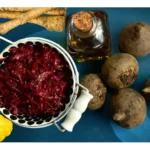
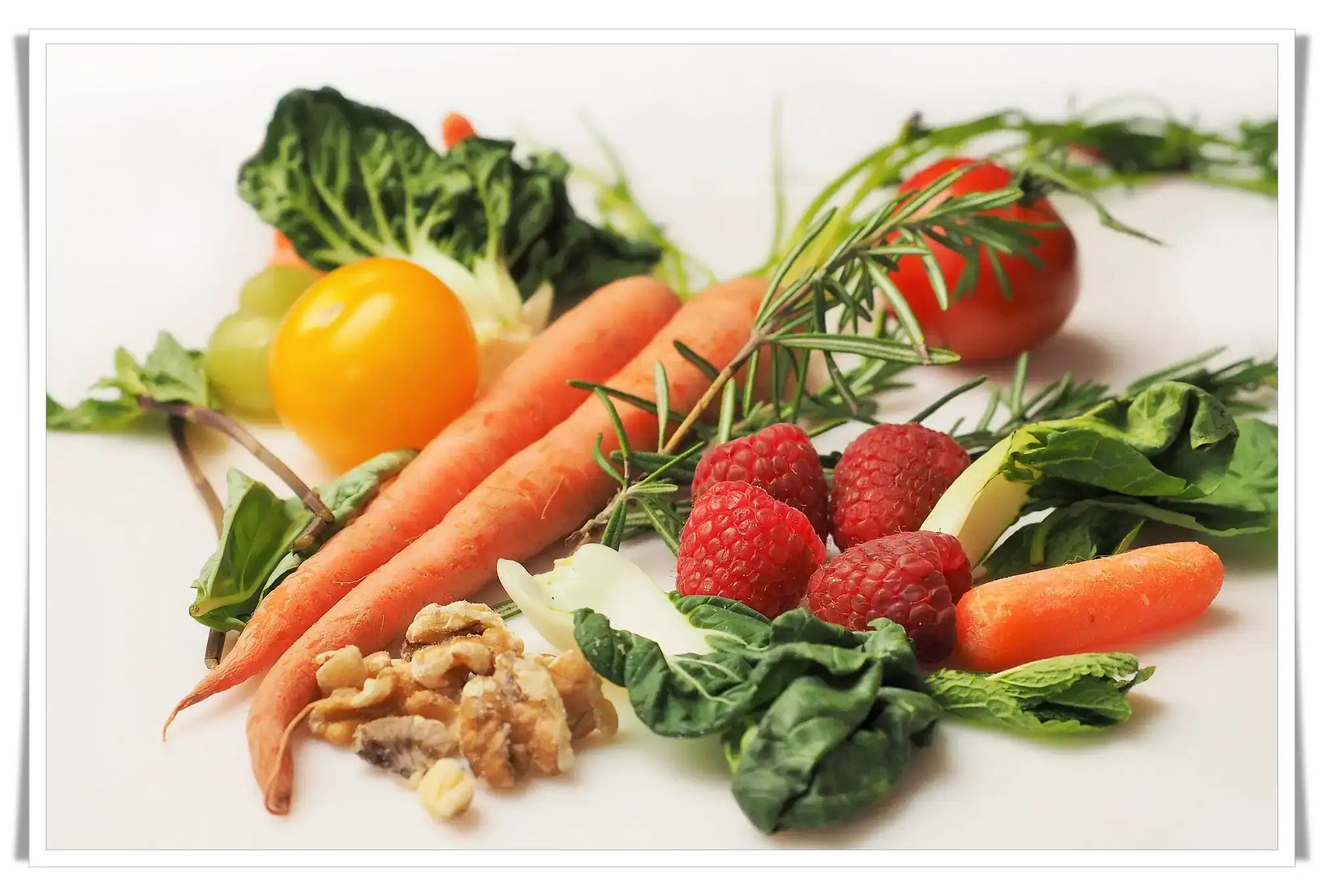
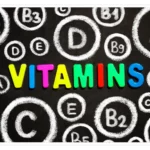
Wow, incredible weblog format! How lengthy have you ever been blogging for?
you make running a blog glance easy. The entire look of your site is magnificent, as well as
the content material! You can see similar: sklep and
here ecommerce
Greetings I am so delighted I found your site,
I really found you by mistake, while I was searching on Yahoo for something else,
Anyhow I am here now and would just like to say many thanks for a remarkable post and a all round thrilling blog (I also love the theme/design),
I don’t have time to look over it all at the minute but I have
bookmarked it and also added in your RSS feeds, so when I have time I will be
back to read a lot more, Please do keep up the excellent b.
I saw similar here: Ecommerce
I used to be recommended this website through my cousin. I am now not positive whether this publish is written by him
as no one else know such detailed approximately my difficulty.
You’re wonderful! Thank you! I saw similar here:
E-commerce